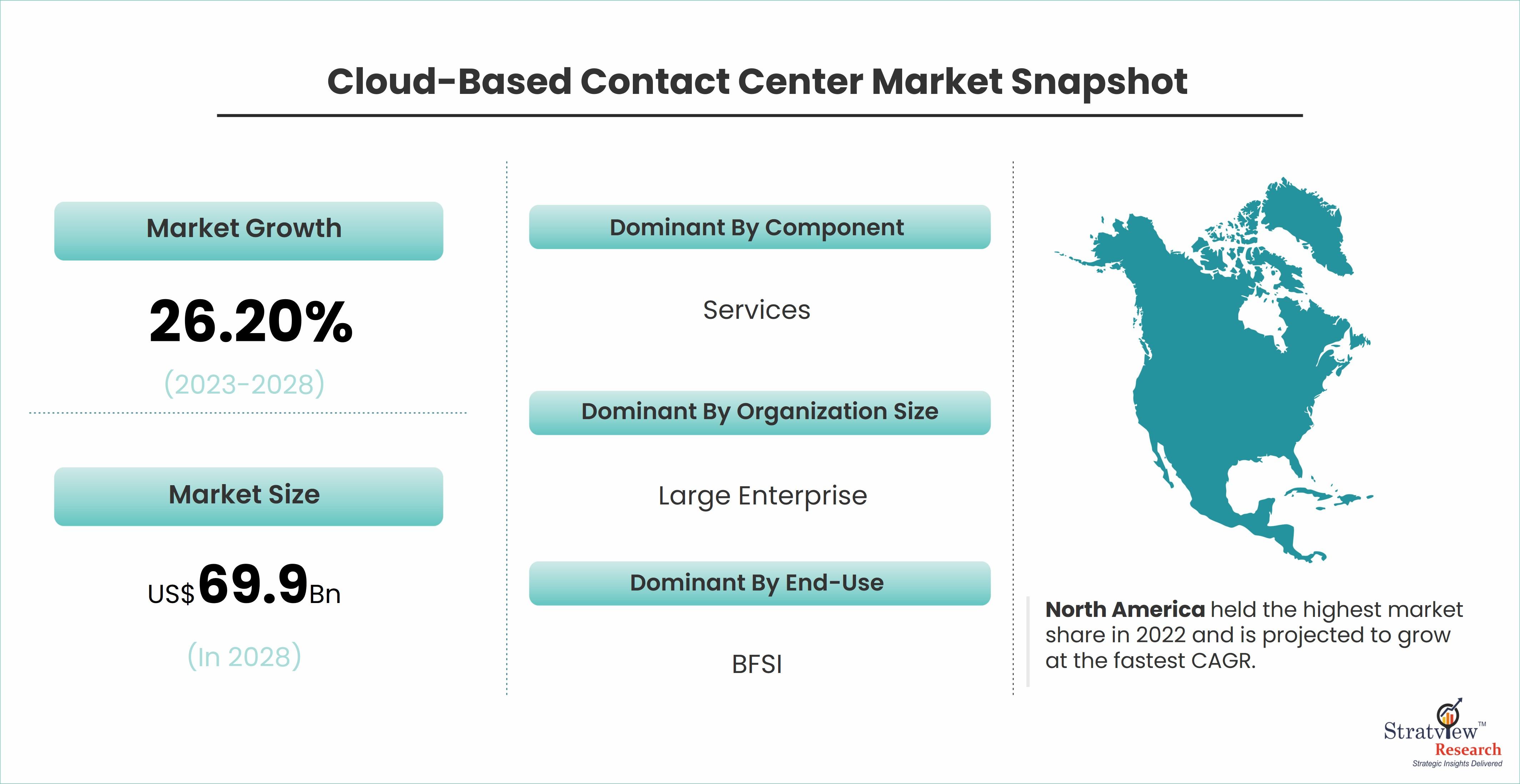The cloud-based contact center market is experiencing rapid growth, fueled by several dynamic factors that are reshaping the way organizations manage customer interactions. As businesses prioritize agility, scalability, and enhanced customer experience (CX), the adoption of cloud-based contact center solutions is becoming increasingly prevalent. This article explores the key drivers behind this growth and why more organizations are transitioning to cloud-based models.
According to Stratview Research, the cloud-based contact center market was estimated at USD 17.22 billion in 2022 and is likely to grow at a CAGR of 26.20% during 2023-2028 to reach USD 69.9 billion in 2028.
- Flexibility and Scalability
One of the primary drivers of growth in the cloud-based contact center market is the unparalleled flexibility and scalability these solutions offer. Unlike traditional on-premises systems that require significant investment in hardware and infrastructure, cloud-based contact centers can easily scale up or down based on demand. This flexibility is particularly beneficial for businesses with fluctuating customer service needs or those undergoing rapid growth. Companies can add or remove users, integrate new features, and adapt to changing business requirements without the need for costly upgrades or downtime.
- Cost Efficiency
Cost savings are a significant factor driving the adoption of cloud-based contact centers. Traditional contact centers involve high upfront costs, including purchasing and maintaining hardware, software, and IT infrastructure. In contrast, cloud-based models operate on a subscription or pay-as-you-go basis, reducing capital expenditure and enabling predictable operating expenses. This model allows organizations to optimize their budget allocation, invest in better CX strategies, and achieve a faster return on investment.
- Advanced Technology Integration
Cloud-based contact centers are at the forefront of integrating advanced technologies like Artificial Intelligence (AI), Machine Learning (ML), and automation. These technologies enhance customer interactions by enabling intelligent routing, predictive analytics, and personalized communication. AI-powered chatbots and virtual assistants handle routine inquiries, freeing up human agents to focus on complex issues. Such integrations not only improve operational efficiency but also enhance customer satisfaction by providing faster and more accurate responses.
- Support for Remote and Hybrid Work Models
The rise of remote and hybrid work environments has accelerated the shift towards cloud-based contact centers. The COVID-19 pandemic highlighted the need for flexible, location-independent customer support solutions. Cloud-based contact centers allow agents to work from anywhere with internet access, ensuring business continuity and maintaining service levels. Features like remote monitoring, real-time analytics, and virtual collaboration tools have become essential for managing distributed teams effectively.
- Omnichannel Capabilities
Modern customers expect seamless interactions across multiple channels, including voice, email, chat, social media, and SMS. Cloud-based contact centers are designed to support omnichannel engagement, providing a unified platform where agents can manage and switch between different channels without losing context. This capability enhances the overall customer experience, reduces response times, and builds brand loyalty.
- Enhanced Data Security and Compliance
Data security and regulatory compliance are critical concerns for businesses managing customer data. Cloud-based contact centers are increasingly focused on providing robust security measures, such as end-to-end encryption, secure data storage, and compliance with regulations like GDPR, CCPA, and PCI-DSS. By ensuring data protection and privacy, these solutions build trust with customers and mitigate the risks associated with data breaches.
Conclusion
The cloud-based contact center market is driven by the need for flexibility, cost efficiency, advanced technology, support for remote work, omnichannel capabilities, and enhanced security. As businesses continue to evolve in a digital-first world, the adoption of cloud-based contact center solutions is set to increase, paving the way for more innovative and customer-centric approaches to customer service management.

